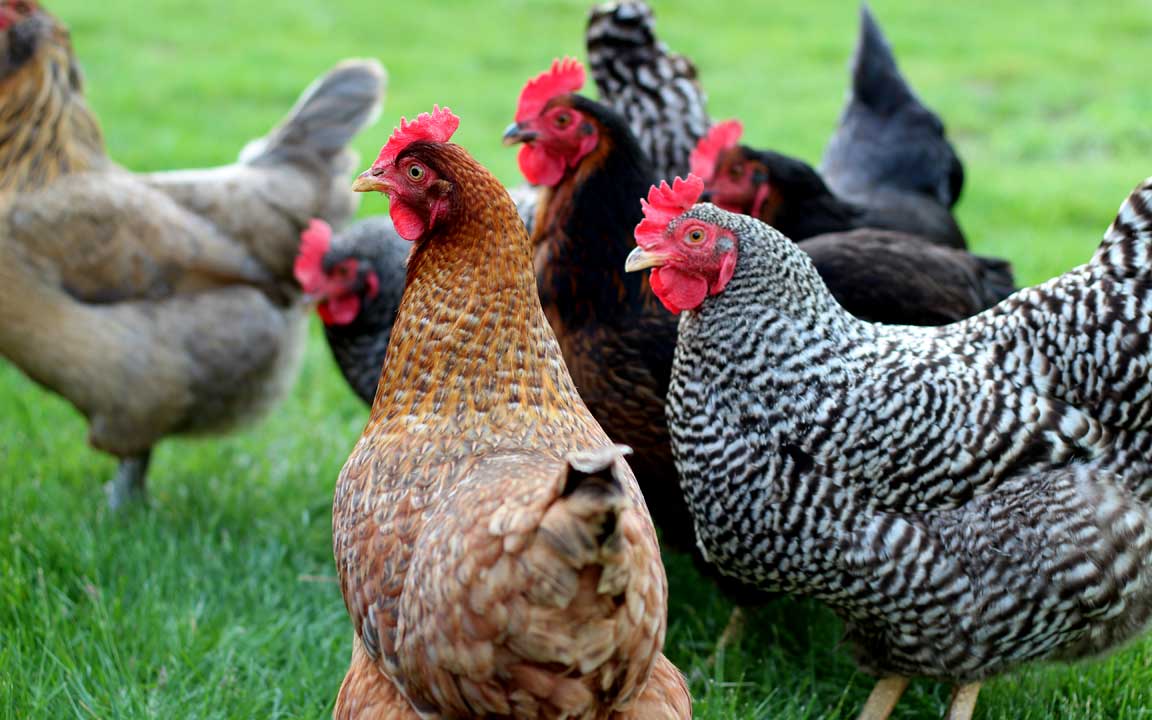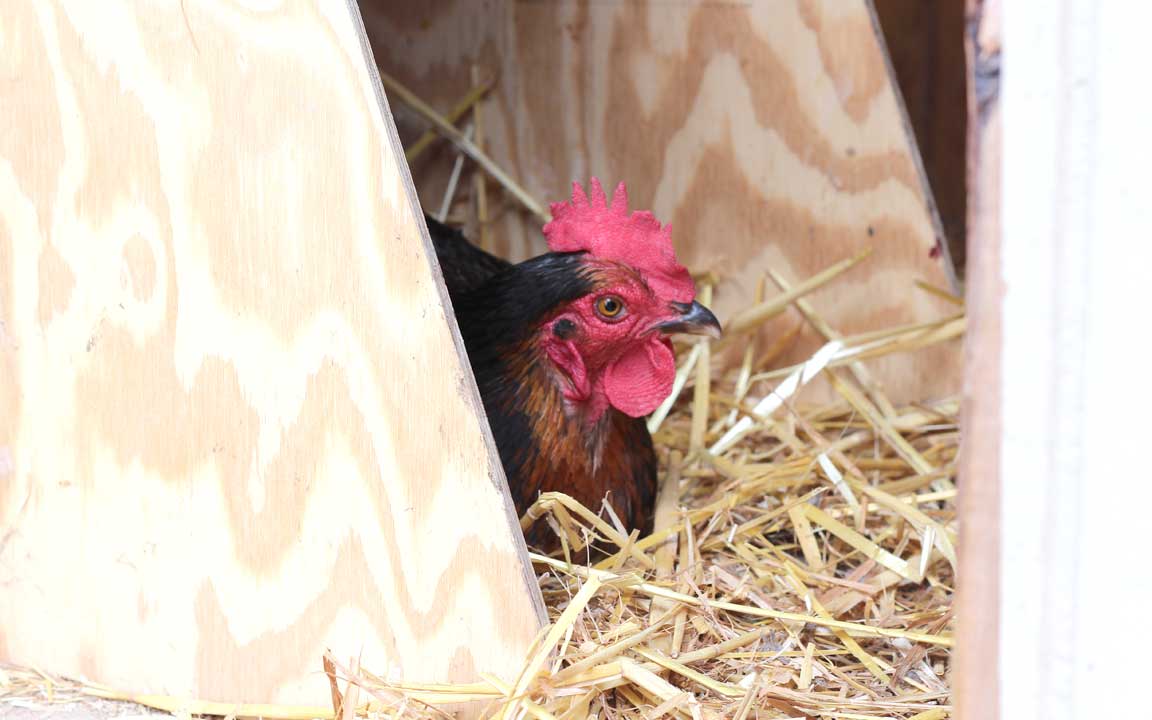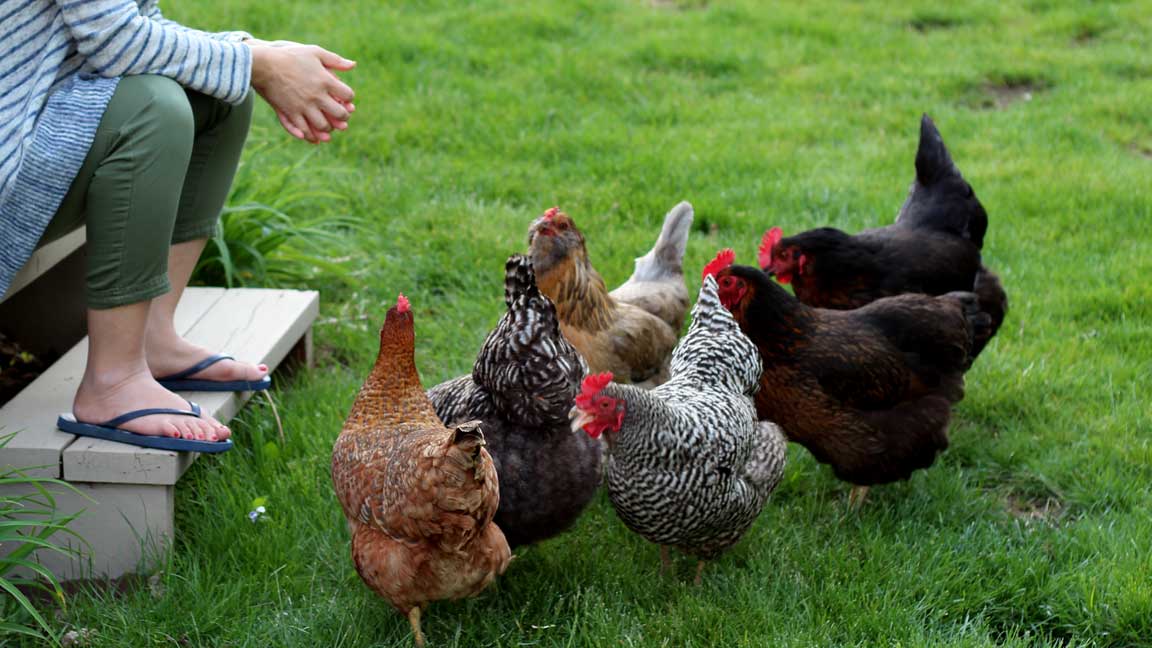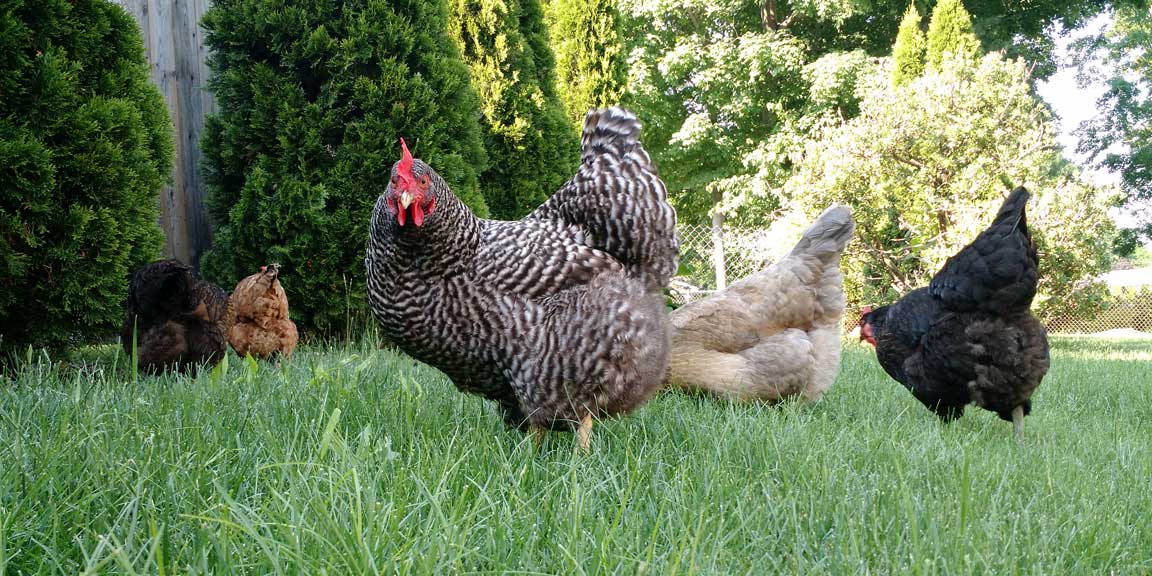Our Chickens Earn Over $30 a Month
“Buk buk buk buk… bukAAAhh!” That’s what we hear first thing in the morning. It’s our chickens singing their egg song after laying. They can get pretty loud sometimes, but as our friend once put it, “imagine shitting a watermelon.” You’d be singing pretty loudly too. We like to hear the song anyway, it means someone laid another egg.
 We were nowhere near your deck!
We were nowhere near your deck!
Chickens are low maintenance
We have six ladies at the moment, and they are the only animals we own. We couldn’t commit to a pet that would require more responsibility, and chickens actually work for you providing top quality eggs. They’re very low maintenance, only needing food and water on a regular basis. When we are traveling, we just need someone to stop in to give them feed and fill up the waterer every few days.
They provide delicious eggs, bot not forever
Hens usually lay eggs for the first 3 years of their life, but can live up to 15 years. So when we got chickens, it was with the knowledge that one day we would have to butcher them and rotate in a new flock. We don’t raise our chickens specifically for meat, but with our first flock of chickens, the butchering came much sooner than we expected.
We got our first flock of chicks through a Craigslist ad. The guy hatched a bunch of himself so they were straight run, meaning there was no way of knowing how many hens and roosters there were. We knew there was risk of getting a rooster, but we got to picking.
Of course, we went for the healthiest and prettiest looking chicks. That selection method didn’t work out for us. A few weeks later, we started to realize 4 out of those 6 sturdy chicks were actually dudes. We live in a suburban neighborhood and couldn’t have roosters waking up our neighbors, so I ended up having to butcher 4 chickens way earlier than expected.
Having to butcher more than half our flock the first summer was hard on us, but the two hens we had left got us hooked. They behaved nicely, laid regularly, and when we let them out in the yard, they always return to the coop at dusk. We enjoyed having them so much that we decided to get another flock. This time though, we got sexed chicks from a reputable farm store. They are all hens, even if they don’t always act like ladies – unless you consider pooping on your friends’ deck ladylike.
 I’m busy in here!
I’m busy in here!
So how many eggs do they lay?
On average, our 6 ladies lay 4 eggs a day, year round including winter. When the days get shorter we give them a timed light set to turn on early in the morning. This keeps their bodies thinking it’s still summertime so they continue producing eggs. At our farmers’ market, a dozen eggs sells for $5. The ladies give us ~10 dozen eggs a month. That’s $50 worth of eggs.
A 50 lb bag of pellet feed costs $16 and the ladies go through about one a month. They eat even less pellets in the summer when they graze on the lawn and snack on bugs. They also get to go over our garden scraps and leftovers. Mrs. CK even collects old food (expired flour, old oatmeal I cleaned out of my desk on my last day of work, etc.) and makes pancakes for them – a really special treat! We also purchase fresh straw for the coop every few months. That makes for about about $20 a month in total recurring expenses.
 Got any more of that pancake??
Got any more of that pancake??
Generally, we each eat two eggs a day for breakfast. We supplement from the market when we make other things like fresh pasta. Since we would get 10 dozen eggs every month anyway, the ladies provide us with $50 worth of eggs. Given it only costs us $20 a month to feed them and maintain the coop, they are earning $30 a month.
Chickens are also great for bug control
In our area, we have a lot of ticks and grubs. The ticks carry lyme disease and the grubs eat away at the roots of grass killing the lawn. In the summertime, our pool filter used to get clogged with the grown grub beetles.
Not cool, but those juicy little grubs and beetles are a favored snack, and we’ve notice a massive decline in their populations since the chickens have gone on patrol. Now, I might find 2 or 3 beetles a day in our strainer basket, which also means less pool maintenance.
Not only are the chickens are more effective than pesticides, but they even do us the favor of fertilizing. I was pretty surprised that our all-natural lawn looked better than our neighbor’s this year.
 I like bugs.
I like bugs.
Pasture raised eggs are second to none
If you don’t have chickens or don’t feel like dealing with them, try getting some eggs at the local farmers’ market. When a chicken’s diet is filled with grass and bugs, they pack a lot more omega-3s and flavor into their eggs. There is a huge difference in taste between pasture-raised and what you get out of a factory farm. As more people support our local markets, we have noticed that more farms have started up and prices are coming down. It’s great for the environment and your community.